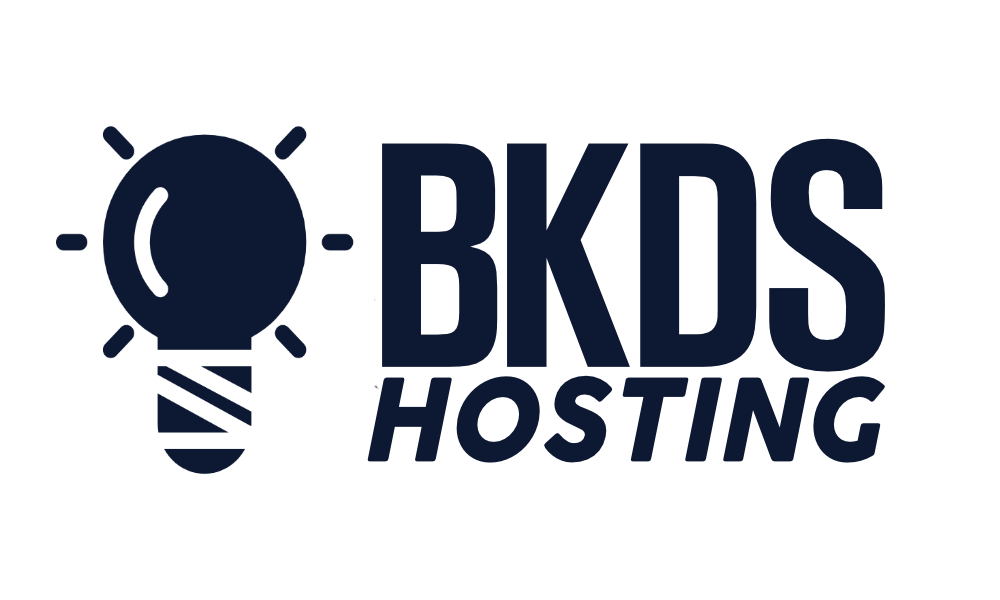In the current digital age, the impact of a robust online presence on small and medium enterprises (SMEs) is undeniable. The virtual arena presents SMEs with a plethora of opportunities to amplify sales, expand their customer base, and gain a competitive edge over rivals. This discourse will highlight ten specific ways in which an online presence can significantly elevate SME sales. While it is clear that an online presence is crucial, the question that requires further exploration is, how can SMEs best leverage the digital space to optimize their sales performance?
Profiting From Online Presence
A substantial digital presence offers SMEs a myriad of lucrative opportunities, transcending geographical limitations, enabling 24/7 operations, and providing valuable insights into customer behavior to drive effective marketing strategies. This online presence paves the way for SMEs to profit by broadening their reach and customer base, eliminating the barriers of time and space that traditional businesses often grapple with.
The cost-efficiency of online operations also contributes to profiting from an online presence. SMEs can keep their doors open round-the-clock, without the overheads associated with physical stores. This increases the potential for higher sales volumes and revenue growth. Moreover, the availability of online data storage mitigates the risk of permanent data loss—a critical aspect for business continuity and resilience.
The strategic use of data is another significant aspect where SMEs can leverage their online presence. Data-driven insights into consumer behavior, preferences, and purchasing patterns enable SMEs to devise tailored marketing strategies, optimizing their sales and marketing efforts for maximum return on investment. Lastly, a robust online presence allows SMEs to craft a compelling brand identity, further bolstering their visibility and enhancing their chances of success in today's digital marketplace.
Brand Awareness and Digital Growth
In the era of digitalization, small and medium enterprises (SMEs) are leveraging online platforms to elevate their brand visibility and stimulate growth. The strategic use of social media and the implementation of Search Engine Optimization (SEO) techniques are pivotal to enhancing organic growth and establishing a robust online presence. By understanding these digital strategies, SMEs can effectively reach a wider audience, foster customer engagement, and drive sales.
Digital Strategies for Visibility
Harnessing the power of digital strategies for visibility, SMEs can substantially boost brand awareness, driving digital growth and establishing a formidable presence in the online marketplace. These innovative strategies allow SMEs to transcend geographical limitations, connecting with a wider customer base and leveling the playing field with larger corporations. Monitoring customer preferences and sales through an effective online presence enables SMEs to tailor their marketing strategies, thus elevating SME sales. Crafting a compelling brand identity and optimizing SEO are crucial to this end.
| Digital Strategies for Visibility |
Impact on SME Sales |
| Wider Customer Reach |
Increased Sales Volume |
| Competitive Edge |
Market Share Growth |
| Informed Decision Making |
Sustainable Sales Growth |
| Compelling Brand Identity |
Customer Loyalty and Retention |
| SEO Optimization |
Enhanced Online Traffic and Conversion |
Impact of Social Media
Leveraging the vast reach and interactive nature of social media platforms, SMEs can significantly enhance brand awareness and stimulate digital growth. The impact of social media is profound; it creates an avenue for real-time interaction and engagement with potential customers. Through various social media channels, SMEs can tap into customer preferences, thereby delivering products and services that meet specific needs. This strategic approach to Social Media marketing not only boosts visibility but also fosters trust in the brand. Moreover, the use of analytics enables SMEs to monitor their online performance and make data-driven decisions to enhance their digital growth. In the era of digital revolution, the innovative use of social media is indeed a game changer for SMEs.
SEO and Organic Growth
While the innovative use of social media provides an avenue for real-time engagement, the role of SEO and organic growth in augmenting brand awareness and digital presence for SMEs must not be underestimated. SEO techniques can significantly boost a business website's online visibility, leading to higher website traffic and improved Search Engine Results. This organic growth, when leveraged strategically, contributes to brand credibility and trust, ensuring long-term digital growth.
| SEO and Organic Growth |
Business Benefits |
Emotional Response |
| Higher Website Traffic |
Increased Prospects |
Excitement |
| Improved Search Engine Results |
Enhanced Visibility |
Confidence |
| Long-term Digital Growth |
Competitive Advantage |
Trust |
In the tech-savvy, competitive digital landscape, SEO is a crucial, innovative tool for SMEs to reach a wider audience and elevate sales.
Advantages of Online Customer Interaction
The strategic implementation of online customer interaction offers a plethora of benefits, including increased customer engagement, targeted marketing, and insightful market research, thereby providing a competitive edge in today's digital marketplace. Small and Medium Enterprises (SMEs) can harness these advantages to elevate their sales through an enhanced online presence.
Online customer interaction creates a platform for real-time engagement, fostering customer loyalty through personalized messages and prompt customer support. The increased website traffic and lead generation potential, facilitated by sharing valuable content and leveraging social media advertising, further bolster sales opportunities.
Moreover, online customer interaction serves as a cost-effective marketing strategy, allowing SMEs to target specific demographics and interests for maximum ROI. This strategic approach not only drives customer acquisition but also retention, by delivering a tailored customer experience.
Additionally, the wealth of customer insights and market research data garnered from online interaction provide invaluable analytics for SMEs. This data-driven approach not only informs strategic decision-making but also keeps businesses ahead of market trends and competitive dynamics.
Monitoring Customer Preferences Digitally
In the realm of e-commerce, monitoring customer preferences digitally is a strategic approach for SMEs to remain competitive. By leveraging digital tools such as Google Analytics and Clicky, businesses can track and analyze online customer behaviors and buying patterns in real-time. This tech-savvy method not only fuels more informed decision-making, but also enables SMEs to tailor their offerings and improve their online presence, thereby boosting sales.
Digital Preference Tracking
Leveraging digital tools such as Google Analytics, Live Traffic Feed, and Clicky, SMEs can strategically track and analyze customer preferences in real-time, thus enabling the refinement of their online marketing strategies. This digital preference tracking allows businesses to:
- Understand customer behavior and tailor their online presence to meet specific needs.
- Use analytics to predict future trends and stay ahead of the market.
- Utilize real-time data to make informed decisions, improving sales and customer satisfaction.
- Implement innovative marketing strategies based on customer preferences, increasing engagement and loyalty.
Incorporating these tech-savvy methods into their strategic planning, SMEs can elevate sales by creating an online presence that resonates with their target audience's preferences and expectations.
Navigating Online Buying Patterns
Navigating the complex world of online buying patterns, SMEs have found a powerful ally in digital monitoring tools that track and analyze customer preferences, enabling the formulation of effective marketing strategies. These tools provide real-time insight into customer behavior, enhancing the business presence by informing strategic decisions based on market research.
| Benefit |
Tool |
| – |
– |
| Real-time tracking |
Google Analytics |
| Understanding of customer preferences |
Clicky |
| Informed business decisions |
Google Analytics |
| Adapting to market trends |
Clicky |
| Personalized offerings |
Google Analytics |
Expanding Customer Base Online
Expanding their online presence provides a strategic avenue for Small and Medium Enterprises (SMEs) to overcome geographical limitations, engage with a broader customer base, and tap into the burgeoning market of online consumers. This strategy allows them to transcend physical boundaries and reach out to consumers who may not have the means to physically visit their business locations.
This expansion strategy can be broken down into four significant points:
- SMEs can access and connect with consumers in regions where physical operations are impractical or restricted, thereby expanding their customer base online.
- A strong online presence enables SMEs to not only reach out to a diverse customer base but also engage with them effectively.
- Through e-commerce, SMEs can increase brand awareness, making them more visible to a wider audience.
- The online platform enables SMEs to tap into the growing market of online consumers who prefer the convenience of online shopping.
Adapting to Digital Evolution
In the digital age, SMEs must strategically adapt to new technologies and online marketing trends to remain competitive. Understanding and leveraging tech innovations, such as data analytics, can enhance customer insights and drive sales. Additionally, effective navigation in the realm of digital marketing can heighten visibility, extend market reach, and ultimately boost profitability.
Embracing Tech Innovations
Embracing technological innovations is a strategic move that enables SMEs to adapt to the digital evolution, a critical factor in maintaining competitiveness and driving growth in today's dynamic business environment.
- Through the integration of digital tools, SMEs can streamline operations, yielding efficiency and cost-savings, thereby boosting SME sales.
- Tech innovations offer the opportunity to expand market reach and penetrate new customer segments, enhancing the online presence of SMEs.
- The digital evolution allows SMEs to keep a pulse on market trends, consumer behaviors, and competition, enabling data-driven decision-making.
- Embracing tech innovations aids in building a robust online presence, increasing brand visibility, and establishing credibility in the digital marketplace, all of which contribute to sales growth.
Navigating Digital Marketing
Building on the foundation of tech innovations, SMEs must navigate the realm of digital marketing, a crucial component of adapting to the digital evolution, to enhance their online presence and boost sales. Recognizing the importance of digital marketing is the initial step in this journey. SMEs can leverage social media for customer engagement, building credibility, and crafting a compelling brand identity. An SEO-optimized website can serve as a powerful tool for elevating SME sales.
| Understanding Importance |
Social Media Leverage |
SEO Optimization |
| Crucial first step |
Customer Engagement |
Powerful tool |
| Elevates online presence |
Builds credibility |
Elevates SME sales |
| Navigating digital marketing |
Compelling brand identity |
Enhances online presence |
| Adapting to digital evolution |
Thrives in competition |
Stands out in online landscape |
| Boosts sales |
Enhances SME sales |
Competitive advantage |
This strategic approach to digital marketing can effectively boost SME sales in the digital landscape.
Importance of Search Engine Visibility
Harnessing the power of search engine visibility, SMEs can effectively ensure their products and services are easily identifiable to potential customers, thereby creating a pivotal role in their overall digital marketing strategies. Search engine visibility, when used strategically, can significantly elevate website traffic, create a robust web presence, and accelerate sales growth.
- Search engine visibility is a critical tool for increasing organic website traffic. By using Google and other search engines, SMEs can reach a broader audience, attracting potential customers who are actively searching for their products or services.
- It helps in creating a robust web presence, essential in a digital-centric era. A strong web presence can help SMEs stand out among their competitors, translating into a competitive advantage.
- Enhanced visibility can lead to increased brand recognition and trust. When SMEs appear higher in search results, they gain credibility, fostering customer trust.
- Lastly, search engine visibility is a cost-effective marketing strategy, enabling SMEs to attract high-quality leads without incurring significant costs.
Building an Effective SEO-Optimized Website
In the realm of digital marketing, constructing an SEO-optimized website has emerged as a strategic necessity for SMEs aiming to bolster their online presence and visibility. Business owners must understand that a user-friendly website structure enhances the visitor's experience, influencing search engine rankings, and subsequently, their digital business's visibility.
Strategic optimization of website content with keywords and meta tags is another integral part of the process. This not only improves visibility on search engine results pages but also attracts organic traffic, which is a cost-effective method to enhance online presence.
In today's mobile-driven era, ignoring mobile optimization could be detrimental. With an increasing number of users accessing websites via smartphones, ensuring mobile responsiveness is no longer a luxury but a necessity.
It's imperative for SMEs to recognize that building an SEO-optimized website is not just about ticking boxes. It's about creating an innovative, intuitive, and interactive platform that resonates with target audiences. By doing so, they can significantly elevate their online presence, drive sales, and stay competitive in the ever-evolving digital landscape.
Strategies for Successful Email Marketing
Mastering the art of email marketing is a strategic move for SMEs seeking to foster a more personal bond with their target audience, drive customer engagement, and ultimately enhance sales performance. As a tech-savvy and innovative Marketing Company, we propose four actionable strategies for successful email marketing.
- Personalize Your Campaigns: Tailor your email content to resonate with individual customers. This approach strengthens the connection between your brand and the audience, leading to a higher likelihood of conversion.
- Leverage A/B Testing: Experiment with different email elements, such as subject lines or designs. Analyzing the performance of each variant can offer insights for optimization.
- Segment Your Email Lists: Categorize your audience based on demographics, behaviors, or purchase history. This segmentation allows for more targeted and impactful email marketing strategies.
- Implement Automated Workflows: Automate email sequences, such as welcome emails or abandoned cart reminders, to maintain consistent engagement and prompt customer action.
Monitoring email analytics is also vital in refining your Email Marketing strategy. By understanding metrics like open rates or conversion rates, you can steer your marketing approach towards what truly works, elevating your SME's online presence and sales.
Utilizing Analytics for Business Growth
To effectively drive business growth, SMEs must prioritize the utilization of analytics, which offers crucial insights into customer behavior and fosters the development of targeted marketing strategies. The integration of advanced web analytic tools such as Google Analytics and Clicky can enable businesses to monitor real-time user actions and website traffic, thereby enhancing their online presence and boosting SME sales.
By systematically tracking and analyzing online customer interactions, businesses can tailor their marketing efforts according to the insights gleaned, ensuring that their strategies align with customer preferences. This strategic approach to utilizing analytics for business growth provides a roadmap for improvement and innovation in online strategies, thereby enhancing the overall customer experience.
Exploiting the power of an online presence allows SMEs to reach beyond geographical limitations and tap into the steadily expanding market of online customers. By leveraging these insights, businesses can anticipate market trends, consumer needs, and potential growth opportunities, thereby making informed decisions that support business growth. Ultimately, the strategic use of analytics transforms an online presence into a powerful tool for driving SME sales and business growth.
Conclusion
In conclusion, a robust online presence is integral to SME sales growth. It offers increased visibility, customer base expansion, operational efficiencies, and a competitive edge. By harnessing data-driven decision-making, cost savings, and enhanced customer engagement, SMEs can significantly elevate their sales. Furthermore, the increased accessibility provided by the digital platforms ensures that SMEs can reach their customers anywhere, anytime, thereby creating opportunities for sustainable business growth.








































